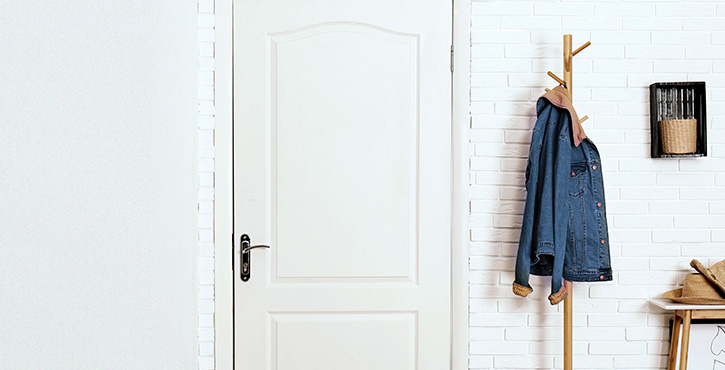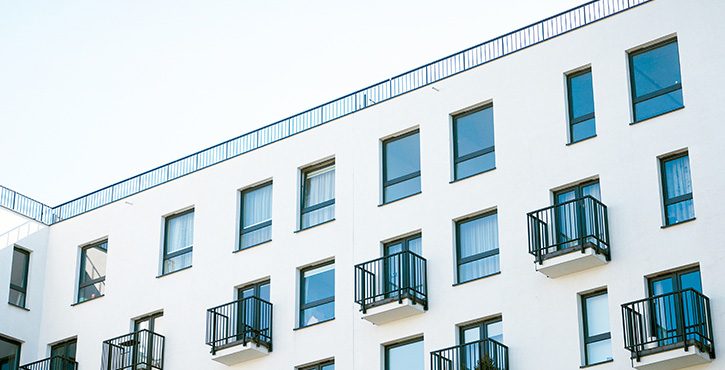Hard, soft or balanced: did you know that the type of water you have in your home can affect the lifespan of your water heater? Learn how to protect it and enjoy better water quality for all your household needs!
What is water hardness?
Water hardness is measured by its mineral content, mainly calcium and magnesium. This occurs when water comes in contact with various rock formations as it infiltrates into the ground. Its concentration varies depending on the region where the water is collected before being treated and distributed to your home.
Water rich in calcium and magnesium is said to be hard. On the other hand, water that contains very little of these minerals is said to be soft.
In Canada, water hardness is measured in mg/L of CaCO3 (the chemical formula for calcium carbonate, which can turn into limescale) or grains per gallon (gpg).
- Balanced water contains between 60 mg and 120 mg of CaCO3 per litre or 1.1 and 7 gpg.
- Hard water contains more than 180 mg of CaCO3 per litre or 7 gpg.
- Water that is too hard and unsuitable for domestic use contains more than 500 mg of CaCO3 per litre or 10.5 gpg.
- Soft water contains between 0 and 60 mg of CaCO3 per litre or 0 and 1 gpg.
What are the effects of hard water and soft water?
Hard water contains a lot of calcium, also called limescale. Although limescale is not harmful to humans, when heated it tends to adhere to surfaces and form scale deposits.
In the long run, limescale will clog your water pipes and build up in your water heater and home appliances. These deposits can lead to higher utility costs because they affect the efficiency of heating elements, as in your electric kettle, for example, thereby increasing their energy consumption.
Finally, water that has a higher concentration of limescale causes dry skin and leaves clothes feeling stiff.
Soft water contains harsh particles (chloride, sulphates, nitrates) that affect your water pipes. Its corrosive action attacks the material they are made of, either lead, zinc or copper. These metals not only rust and puncture after time, but they might also erode into the water that you drink.
In addition, soft water is rich in sodium and is not recommended for pregnant women or people suffering from hypertension or cardiovascular diseases.
Ultimately, balanced water is best to ensure a double protection against scale buildup and pipe corrosion, and its low mineral content is ideal for your well-being.
How can you test the hardness of your water?
There are many ways to measure water hardness:
- You can analyze it yourself with a water test kit (sold online or in hardware, pool and aquarium stores). The included test strips will change colour depending on the hardness of the water tested.
- Consult your water supplier or the city.
- Have it tested in a laboratory.
- Look it up on the web. A municipal newsletter, a newspaper article or a survey, conducted by a water quality association, may have addressed the issue in the past!
As a reference, consult the Appendix which lists the water hardness levels of about 60 municipalities in Quebec.
How does water hardness affect my water heater?
Hard water can build up in the pipes connected to your water heater.
Soft water will attack the water heater’s inner tank, which will rust or puncture.
Balanced water gradually leaves a small layer of limescale on the water heater’s inner walls, which prevents corrosion without causing scale buildup. It is the best option to keep your water heater operating efficiently for as long as possible.
“In Quebec, most cities provide balanced water. There is therefore no cause for concern. However, you can always optimize your water quality to extend the lifespan of your water heater,” says André Auger, an independent plumber.
What can I do to protect my water heater?
You should test your water hardness before you consider installing a device to protect your water heater.
If your water is already well balanced, there is no point in trying to make it any softer, you might make it corrosive.
Your water is probably not too soft unless you had a water softener installed that was set too high or you over-treated it. In this case, you should notify your water supplier.
Here are different systems that can protect your water heater from scale buildup:
- A magnetic water treatment device creates a magnetic field to prevent scale-forming particles from adhering to the water heater’s walls, fittings and joints.
- A water treatment system, which is installed on the water heater’s inlet, reduces scale buildup. This installation, unlike a central water softener, enables filtration of the water flowing into the tank, leaving the cold water coming from the main water supply untreated, which is better quality for consumption.
- Setting your water heater temperature to a maximum of 60° C will reduce the risk of scale formation.




